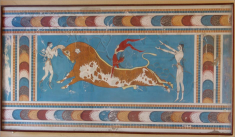Speaker
Description
The study of phenomenology of the strong nuclear force (QCD) in High energy collisions of hadrons accessing the data from particle physics colliders is an ongoing research during last two decades. Different phenomenological models along with the event generators are used to reproduce experimental data.
There is confrontation of such model components and experimental data during its validation in a systematic way though these event generators are very useful. To overcome these challenges, the RIVET (Robust Independent Validation of Experiment and Theory) platform has been used during last decade~\cite{Bierlich:2020wms, Bierlich:2019rhm}. The RIVET analysis accounts for the comparisons between data and theoretical calculations of the final state of collision events. A direct comparison could be established between Monte–Carlo event generators and data using RIVET analysis.
We have already studied the production of charged-particles in proton-proton (p-p) and heavy-ion (Pb-Pb) collisions using Angantyr model in PYTHIA8 at LHC energies. In the analysis work, the charged-particle multiplicity has been observed as a function of mid-rapidity $|\eta|$ and transverse momentum $p_{T}$ in p-p collision. In heavy-ion (Pb-Pb) collision, this observable is studied as a function of $p_{T}$ and mean collision centrality ($
Details
Tinku Sarkar - Sinha
Saha Institute of Nuclear Physics, Kolkata, India
http://www.saha.ac.in/web/
| Is this abstract from experiment? | No |
|---|---|
| Name of experiment and experimental site | N/A |
| Is the speaker for that presentation defined? | Yes |
| Internet talk | Yes |
